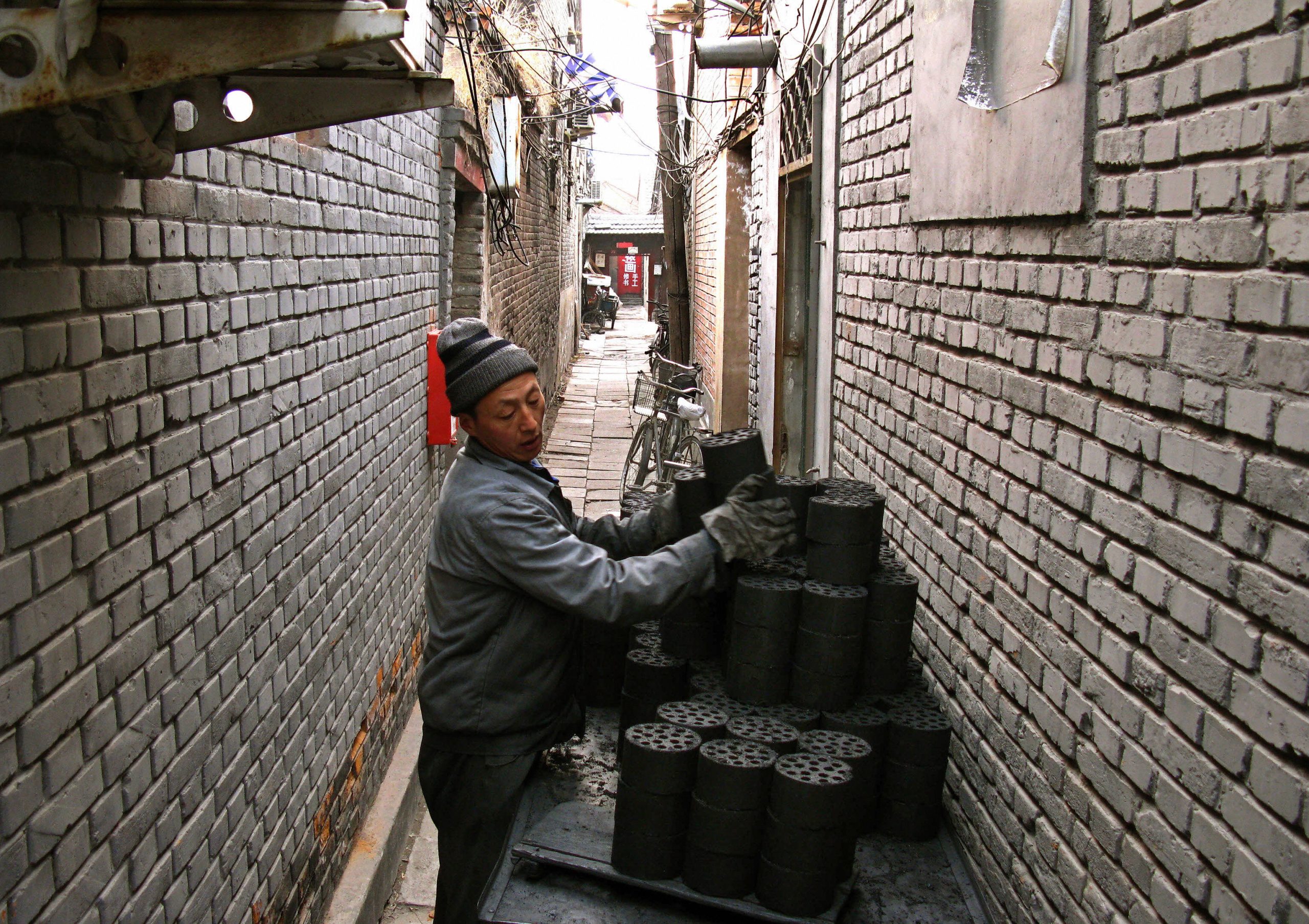In China, coal and biomass like wood chips and sawdust are burned for cooking and heating. The resulting household pollution has contributed significantly to China's poor air quality. But between 2005 and 2015, China's population moved to urban centers and grew wealthier. More and more people were able to switch their cooking and heating to natural gas- and electricity-powered appliances. Now, researchers from Tsinghua University in Beijing and the University of California Berkeley say that the shift likely saves about 400,000 lives annually.
Research published this week showed that population-weighted exposure to fine-particle pollution in Chinese households decreased by nearly half between 2005 and 2015. Ninety percent of that decrease came from changes in cookstove and heating technology. These changes avoided 400,000 premature deaths from particulate exposure annually, because fine-particle pollution is strongly linked to premature death in people with lung or heart disease, and it causes a host of other lung and heart problems.
Invisible hand of health
What's interesting is that these positive changes happened without any government intervention; they were unintended consequences of a booming economy. That means there's a lot of room left for further improvements. As of 2015, household fuels still accounted for 43 percent of the fine-particulate-related mortality in China, as solid fuels like coal and biomass haven't been completely eliminated. They're especially prevalent in low-income households and in rural areas where natural gas and electricity service is nonexistent.
If the remaining coal and biomass heating and cooking were replaced with cleaner fuels, the researchers found, China could further reduce exposure to fine particulate matter by 63 percent. This would prevent an additional 510,000 premature deaths.
Although most of the household particulate pollution reduction seen in China was a result of a cookstove technology shift, the paper also studied the effects of substituting out coal and biomass in home heating. Switching to natural gas and electricity heating didn't contribute as much to pollution control as applying the same substitutes to cooking did, because heating is only used during parts of the year and not in all of China's provinces.
Visible hand of health
But here, too, there's room for improvement, and the Chinese government knows it. "In 2017, an action plan for clean heating was launched in northern China, with a focus on Beijing–Tianjin–Hebei and the surrounding areas," the paper notes. "The overarching goal is to increase the fraction of clean heating in northern China to 70 percent by 2021."
The move to focus on pollution coming from household fuel use diverges from China's policies in the previous decade. Between 2005 and 2015, China's government focused intensely on cutting emissions from large power plants, to the exclusion of trying to rein in more distributed forms of pollution. That helped bring some ambient air pollution down—not only from fine-particulate pollution but also from sulfur dioxide. However, the paper's authors noted that between 2005 and 2015, policies focused on reducing emissions from power plants and industry actually failed to do anything in the case of nitrogen oxide, another potent pollutant. This is because the country's economic growth offsets any emissions controls the government instituted.
The good news, the researchers write, is that they expect "the transition toward clean fuels for cooking will continue, even if no control policy is implemented." It's simply a product of China's continued development and urban growth. But that growth might slow without a concerted effort from the government. The people who have upgraded their cookstoves and heating appliances to cleaner-burning fuels have done so in areas where the switch was relatively easy to make. But in rural and low-income urban areas, switching to cleaner cooking and cleaner heating will require infrastructure "such as the construction of a natural-gas pipeline network or an upgrade of terminal power grid."
Without a concerted effort to connect people to cleaner fuel sources, household pollution will continue to be a health hazard.
PNAS, 2018. https://doi.org/10.1073/pnas.1812955115. (About DOIs).


